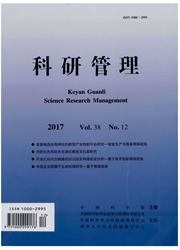

 中文摘要:
中文摘要:
基于股权融资的市场时机理论,结合我国资本市场再融资政策,本文较为深入地实证分析了市场融资条件对上市公司股权融资和资本结构的影响。检验期间内的研究结果表明:在流通股市价被普遍高估的市场条件下,再融资政策是导致股权融资次数差异的主要因素,而融资次数的差异直接导致了上市公司利用市场融资条件的差异。对融资次数较多的公司而言:(1)利用股价高估的市场条件,通过股权融资降低了企业的资产负债率;(2)以往实施股权融资年份的股票市价对当前的资本结构具有显著的影响;(3)股票市价对上市公司IPO后资本结构的累积变化具有显著影响。对样本公司总体而言:(1)现时和历史的高估股票市价对公司资本结构均未产生持续显著的影响;(2)再融资政策的限制使得普遍的股权融资偏好并没有转化为普遍的股权融资现实结果;(3)总体平均负债率的下降,在相当程度上是由于获得较多再融资机会的公司吸纳了更多融资资金后的平均化结果。
 英文摘要:
英文摘要:
Based on the theory of equity market timing combined with the refinance policy in Chinese stock market, the effect of refinancing condition in Chinese stock market on the capital structure is investigated elaborately. It is found that the constraint of refinancing policy results in the difference of issuing time among the listed companies under the overvaluation condition of circulating stock. Moreover, the difference of finance frequency causes the difference of utilizing the refinancing condition in listed companies. For the finns with more refinancing, three main conclusions can be drawn: 1. The overpricing of stock decreases the finn leverage in most years. 2. The historical stock valuation in the year of finance has a significant negative impact on the present capital structure. 3. The current market valuation of stock affects the accumulation change of capital structure since IPO notably. For the sample finns as a whole, three opposite conclusions can be obtained: 1. The present and historical market overvaluation of stock does not affect capital structure of the finn coustantly. 2. The preference of issuing equity does not turn into the actual outcome due to the constraint of refinancing policy. 3. The total average finn leverage decreases. To large extension, it is the outcome of that of the partial finns refinancing several times absorb much more finance capital and average them.
 同期刊论文项目
同期刊论文项目
 同项目期刊论文
同项目期刊论文
 期刊信息
期刊信息
